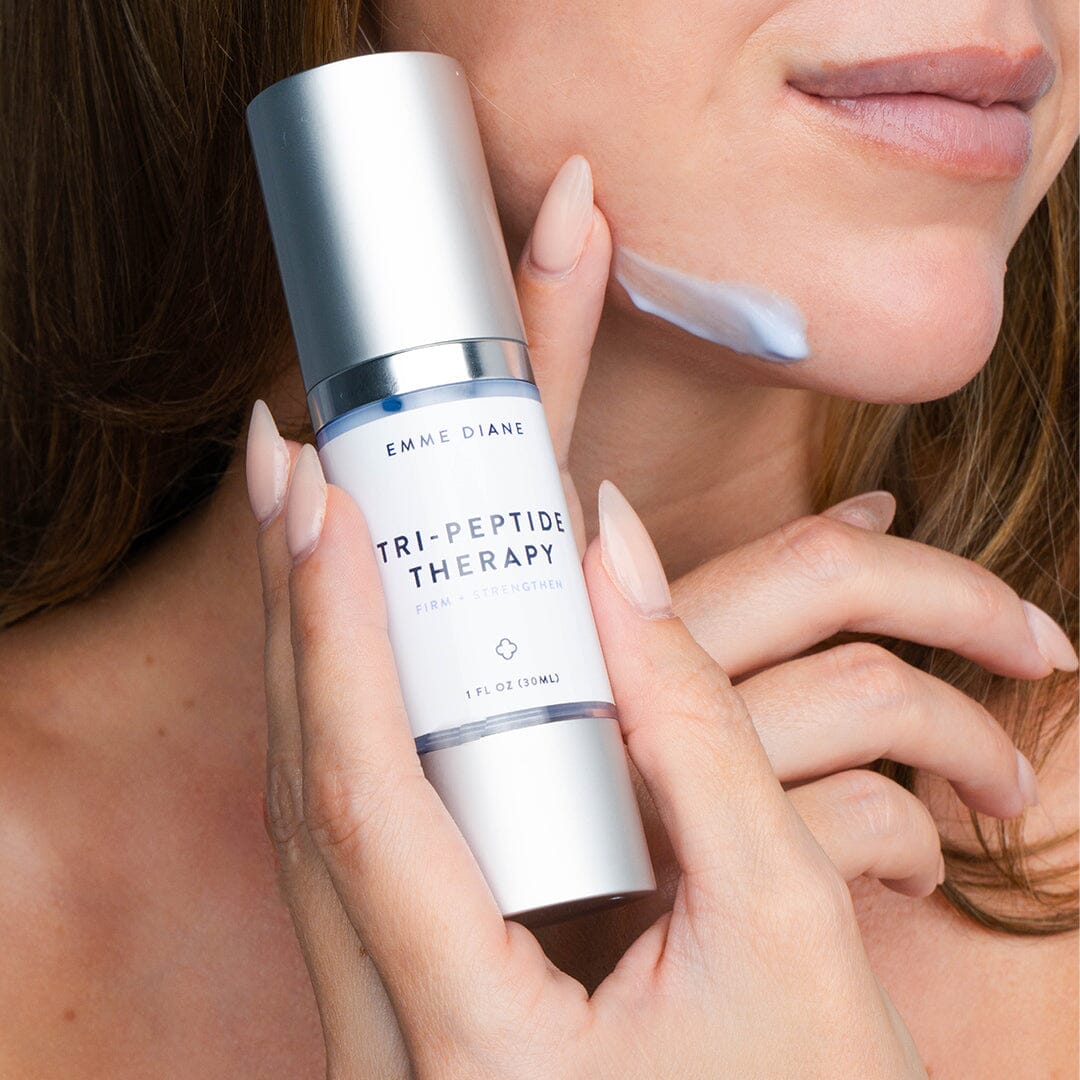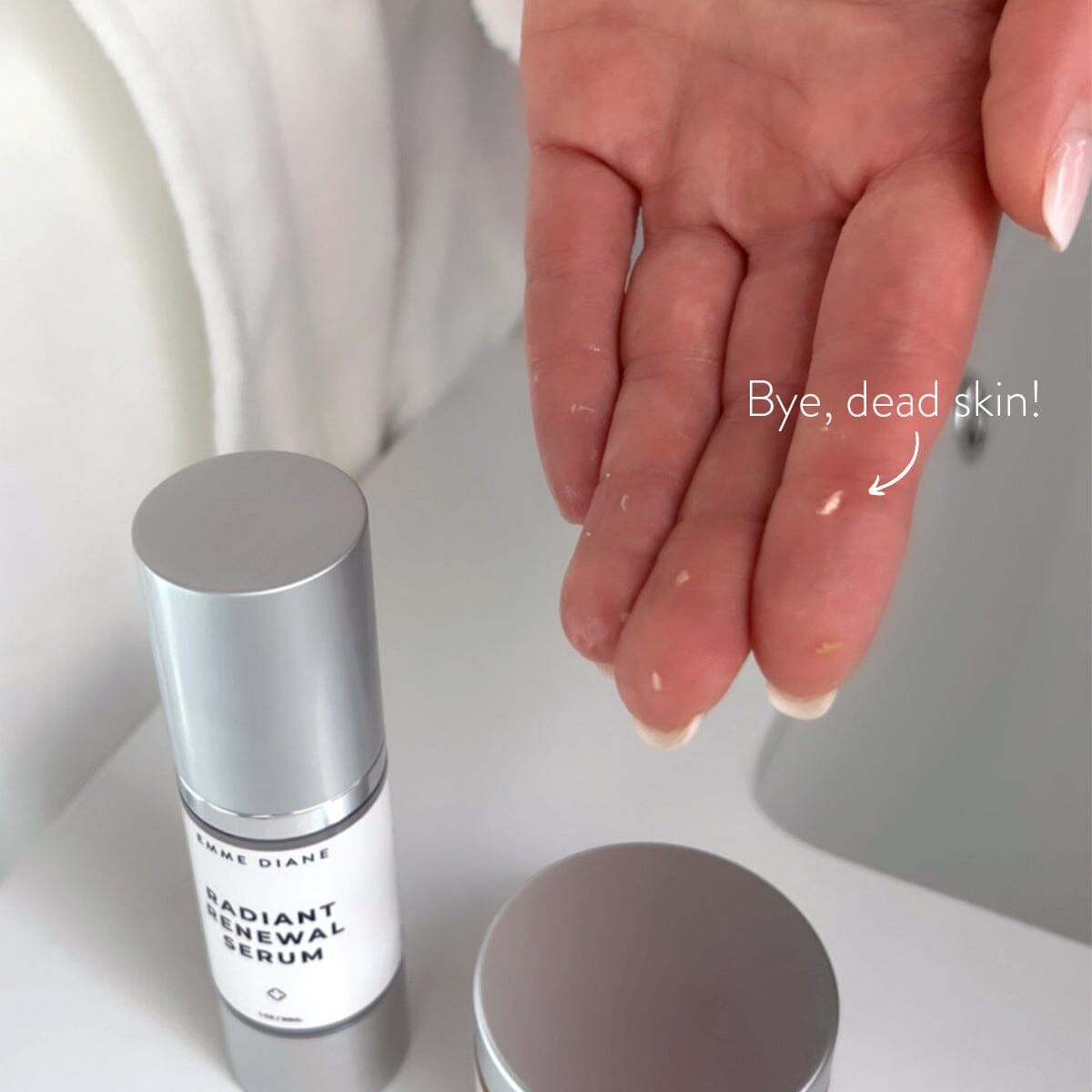How Acne Affects Mental Health
by Emily Linehan on May 09, 2022
In honor of May being Mental Health Month, I felt it was important to reflect on the fact that almost 1 in 5 Americans are living with a mental health condition. Although mental health looks different for everyone, I wanted to take a moment to address a growing issue that I have observed throughout my 20+ years as an esthetician, and that is how acne can affect mental health.
Although more commonly talked about these days, adult acne still seems to have a stigma attached to it. Something discussed even less, is that the effects of acne are more than just skin deep. Countless studies have shown that those diagnosed with acne can also struggle with depression, anxiety, poor self-image, low self-esteem, withdrawal from social settings and more.
In fact, in a study published in the British Journal of Dermatology, researchers found that within the first year of an acne diagnosis patients had a 63% higher risk of major depression than those without acne. [1] Furthermore, studies have shown that acne can even lead to suicidal ideation, with one study finding that 6% of acne patients reported active suicidal ideation. [2]
Those suffering from mental health conditions related to acne are often doing so due to the stigmatization of acne in our society. For example, many may believe that acne is caused by poor hygiene, however that is generally untrue for those who are actively working towards clearing their skin. In addition, many acne sufferers may feel as though they are abnormal due to the lack of representation of acne in social media and advertising. Unfortunately, this is not the case…in fact, acne is actually the most common skin condition in the United States.
How to Cope
In a world full of filters and face tuning apps, dealing with even the most mild acne has become increasingly more difficult. Although it may feel impossible, here are a few tips to help you cope with acne and the mental health issues that may accompany it.
Set Realistic Expectations
As I mentioned previously, we live in a world where you really only ever see the best of people in their online presence. It’s important to understand that the ‘perfect skin’ being posted is not always as perfect as it may seem on social media. While there are definitely steps to take to get closer to your skin goals, even those with the most glowing skin have off days too, so don’t become discouraged by what you see online.
Speak with a Professional
Your skin is unique, therefore what works to clear one person’s acne may not work for you. In order to successfully clear acne, we need to not only address the cause of the acne and control the acne causing bacteria, but we also need to uncover and eliminate all of the acne triggers. This is why I always recommend that my clients start with my free online consultation. In about 5-15 minutes, you’ll answer questions regarding your skin concerns, diet, and lifestyle habits that help lead us to creating a customized skincare routine that will work for your unique skin.
Check for Pore Clogging Ingredients
When it comes to acne, pore clogging ingredients are often a big catalyst for chronic acne breakouts. Unfortunately, many popular makeup brands, haircare brands, and body care brands contain pore clogging ingredients that wreak havoc on acne prone skin. I recommend checking my Pore Clogging Ingredient List and my Acne Safe Makeup List to ensure you’re using products that aren’t working against your skin.
Get a Facial Treatment
In coordination with a customized skincare routine, getting regular facial treatments can help accelerate your results. At our Skin Studio in Scottsdale, Arizona we offer facial treatments customized for your unique skin. Treatments such as our Clarifying Facial help to accelerate the clearing of acne and cleans the pores on a much deeper level. In addition, professionals are also able to utilize advanced technology, such as Nano Infusion technology, to help reverse acne scarring and smooth texture.
If you are struggling with adult acne and/or mental health issues, please know that you are not alone. The truth of the matter is that adult acne is much more common than you might think and is actually increasing. Clinical studies show that between 40-55% of the adult population are diagnosed with various grades of persistent acne. I have also struggled with acne and am intimately aware of the toll it can take both physically and mentally. The good news is that there are resources out there to help! If you have any questions, or just want to talk, feel free to reach out to me directly at emme@emmediane.com. I’m always here for you.
xoxo,
Emme
If you or someone you know is struggling with mental health, please encourage them to speak with a licensed professional. Or, in the event of a crisis, you can text MHA to 741741 or call 1-800-273-TALK (8255) to reach a trained crisis counselor 24/7, 365 days a year.
Sources:
[1] I.A. Vallerand, R.T. Lewinson, L.M. Parsons, M.W. Lowerison, A.D. Frolkis, G.G. Kaplan, C. Barnabe, A.G.M. Bulloch, S.B. Patten. Risk of depression among patients with acne in the U.K.: a population-based cohort study. British Journal of Dermatology, 2018; DOI: 10.1111/bjd.16099
[2] Gupta MA, Gupta AK. Depression and suicidal ideation in dermatology patients with acne, alopecia areata, atopic dermatitis and psoriasis. Br J Dermatol 139(5):846-50 (1998 Nov).


